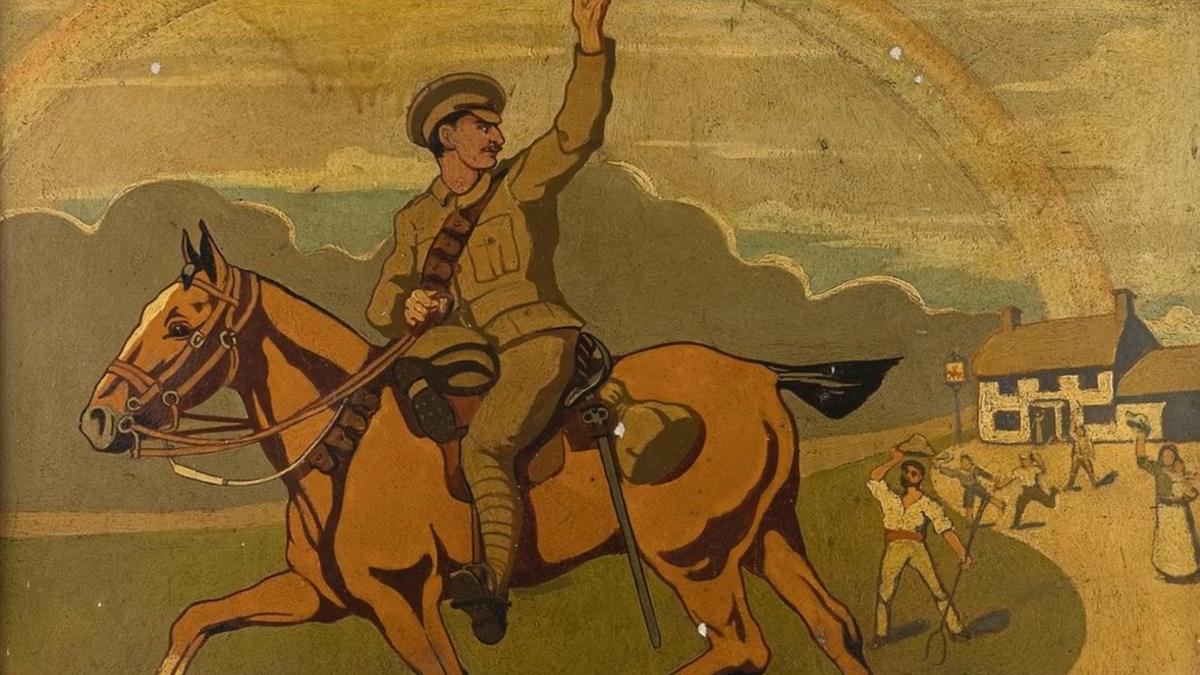Relative of Wordsworth uncovered after garden dig
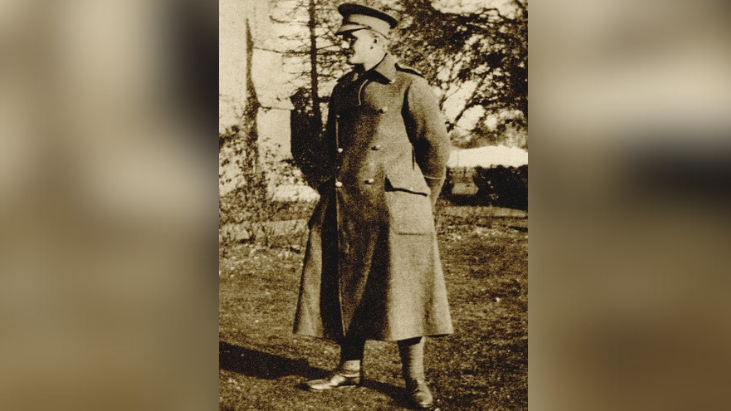
Lt Osmond Bartle Wordsworth is a descendent of the poet
- Published
When a farmer came across human remains while digging in his garden in a village in France in 2013, little did he know that he had discovered the body of a World War One soldier and descendant of poet William Wordsworth.
Artefacts such as a scrap of uniform, a pocket watch and a whistle were found with the body and used to help identify the soldier.
They led historians to the discovery that he was in fact Lt Osmond Bartle Wordsworth from the Oxfordshire & Buckinghamshire Light Infantry.
His story will be told at an event at Faringdon’s Buscot Park on Thursday.
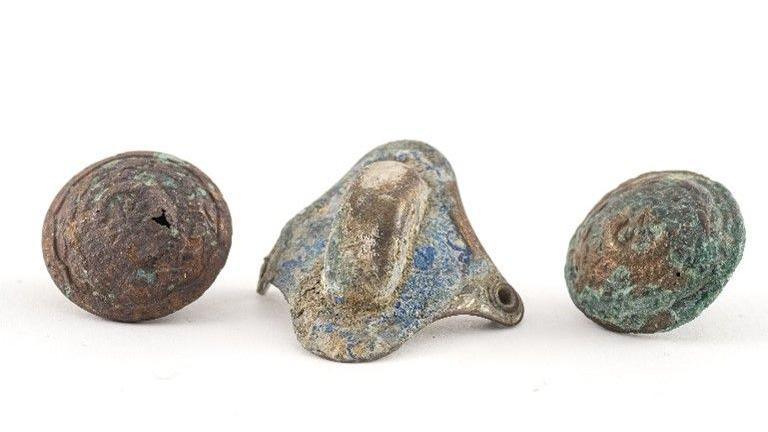
Mr Innes said the uniform and button found with the soldier's remains "were very helpful" with his identification
Volunteer David Innes, from the Soldiers of Oxfordshire Museum (SOFO) in Woodstock, said the uniform and button in particular "were very helpful".
"That's really where the detective work came in and that's how the museum, then became involved."
The artefacts were transferred to SOFO for research and remain part of its collection.
Mr Innes said SOFO had worked out that there had been "a major British offensive" near Arras in the spring of 1917.
But the soldier's body was found 5 miles (9km) from the battlefield, so questions arose around whether he had been wounded, taken to a medical aid station and then buried where he died.
Mr Innes said that would have been "unlikely".
"So we were left with the tantalising solution at that stage that this was an officer of the Oxfordshire and Buckinghamshire Light Infantry, who died close to a number of fellow officers, but was not serving with them at the time."
After consultation with the Machine Gun Corps, it was worked out that an officer had been attached to the unit.
"The surmise was that maybe it could have been him still wearing his Oxfordshire and Buckinghamshire Light Infantry uniform, even though he had been with the Machine Gun Corps for several months before he was subsequently killed," Mr Innes said.
It was then discovered that officer was Osmond Bartle Wordsworth, a collateral descendent of the poet, meaning he was related through a common ancestor, but was not a direct descendant.
Wordsworth was one of the most influential of England's Romantic poets and passed away in 1850.
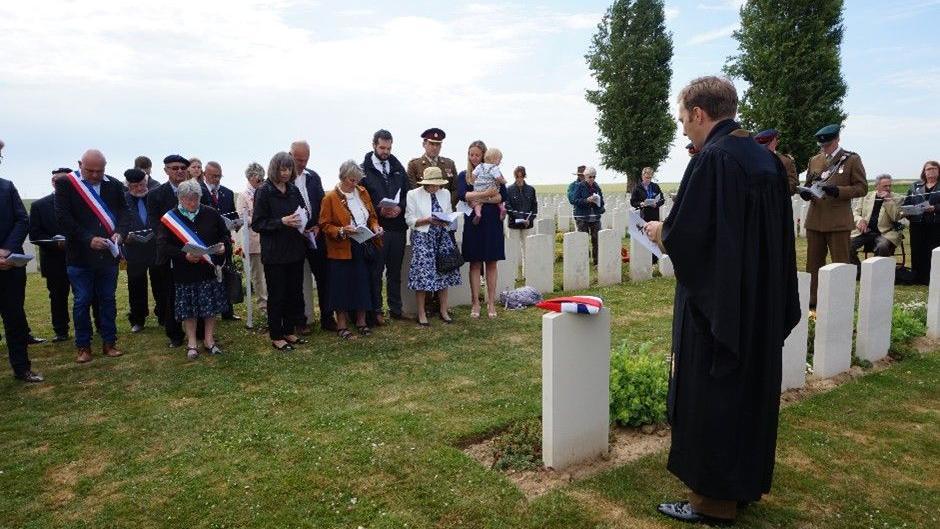
Lt Wordsworth was reburied with his own headstone after his successful identification
He also survived the sinking of the Lusitania by a German torpedo in 1915, while travelling to England from Canada where he used to teach.
Mr Innes said Lt Wordsworth had helped a lady during the disaster by giving her his life jacket.
"When he was first found he was buried as simply another unidentified soldier... with a headstone with an inscription as 'Known unto God'," he said.
"As a result of the detective work which took place by volunteers in the museum... he was reburied with his own headstone."
Mr Innes said it was "a remarkable story" given how long the body had been lost for and the little evidence they had to work with.
In late 2018, a SOFO visitor advised staff that he knew a Wordsworth and contact was made with the family.
"In a way, it's raising a salute to a man who gave his life for his country, for his county," Mr Innes said.
"He was a hero, really, so it is an important story for Oxfordshire and for the museum and the volunteers who worked on the topic - it was really very exciting."
Ingram Murray, father of historian and comedian Al Murray, will lead the talk at Buscot Park.
There will also be a dedication to the memory of Tom Shannon, a SOFO trustee who was involved in the search but passed away in 2022.
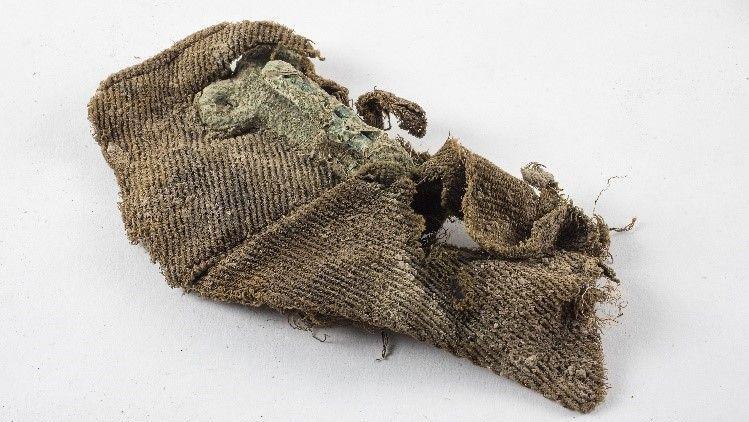
A scrap of Lt Wordsworth's uniform also helped the research
Get in touch
Do you have a story BBC Oxfordshire should cover?
You can follow BBC Oxfordshire on Facebook, external, X (Twitter), external, or Instagram, external.
Related topics
- Published20 March 2024
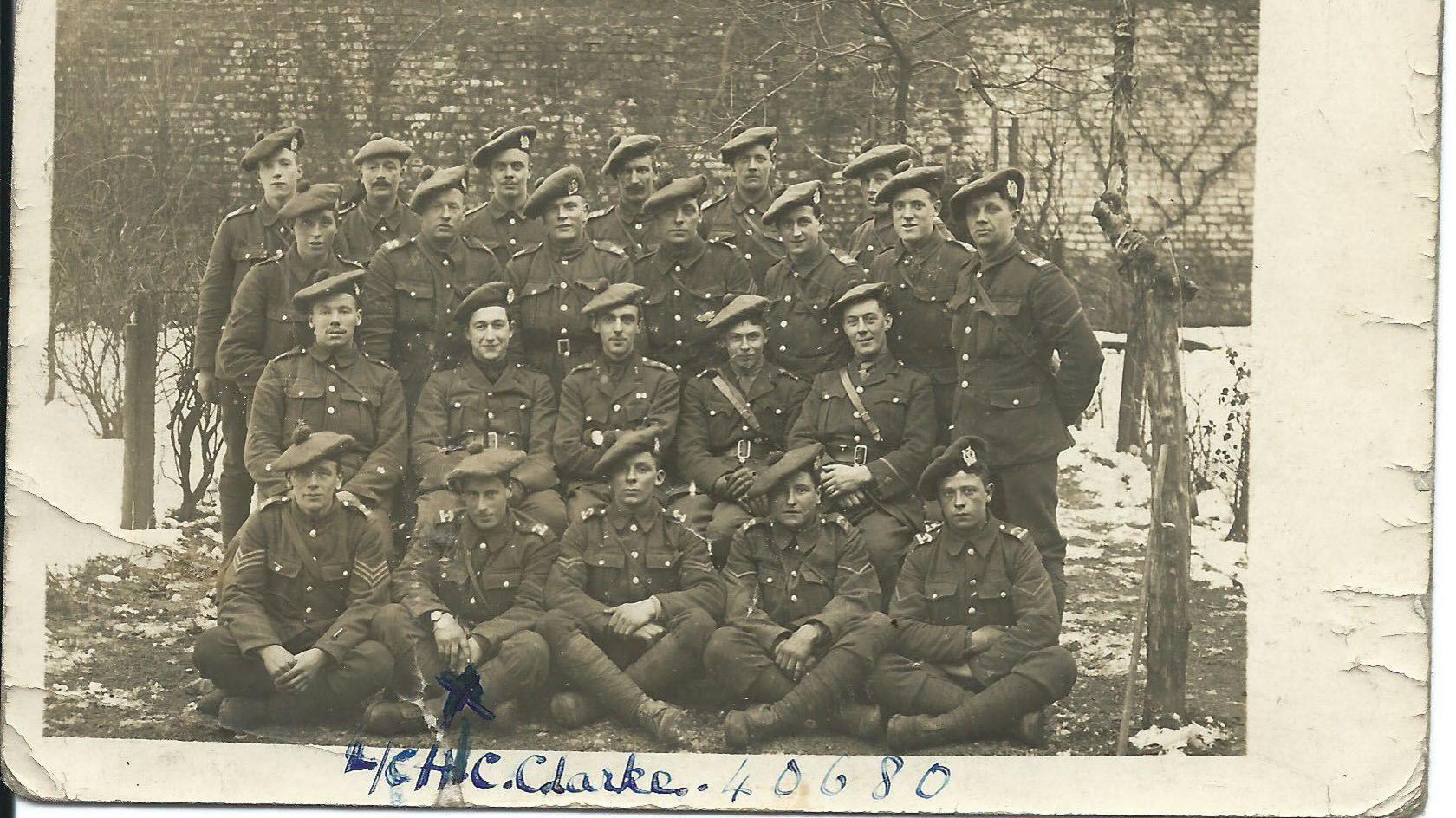
- Published1 June 2024
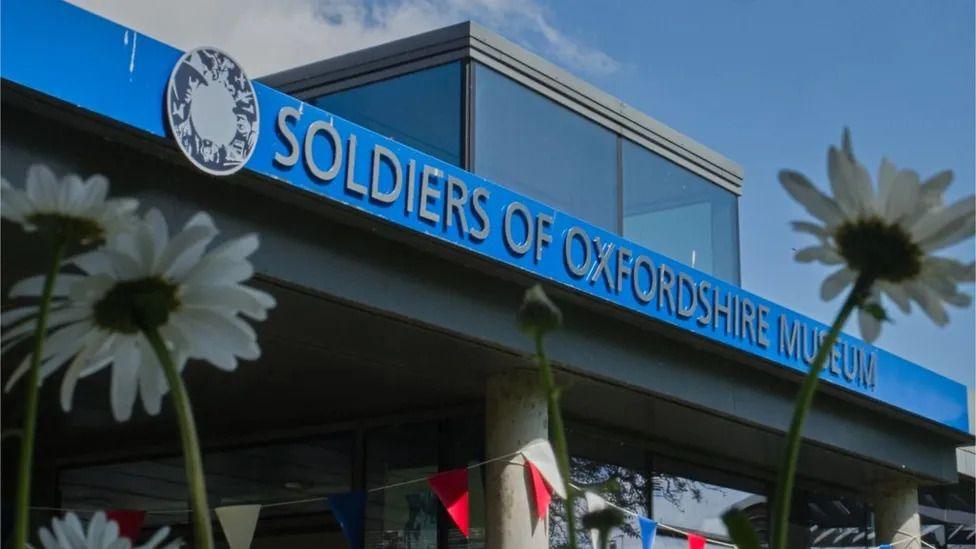
- Published11 November 2022
